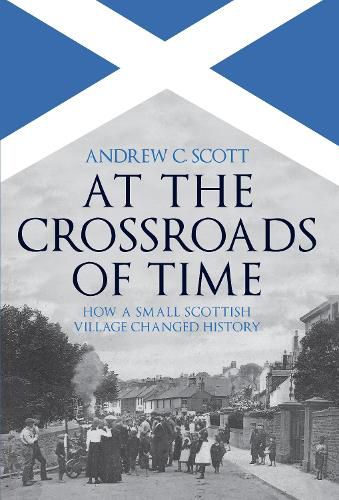Readings Newsletter
Become a Readings Member to make your shopping experience even easier.
Sign in or sign up for free!
You’re not far away from qualifying for FREE standard shipping within Australia
You’ve qualified for FREE standard shipping within Australia
The cart is loading…






Unlike many other small villages in the UK, Lesmahagow has many claims to fame because of its location and geological heritage and due to many of its sometime residents having taken up influential roles in the history of the nation. Andrew C. Scott’s family lived in the village for more than three centuries, and in this book he explores the fascinating story of this unassuming settlement.
More than 400 million years ago the earliest fishes swam in its lagoons together with giant sea-scorpions. The fossils of these amazing creatures are famous worldwide. The coals, formed from peats when the area lay across the equator, fuelled a number of revolutions in energy supply. Important to Scott is not simply the industrial ecology, but the networks of families and people who made the local community. Inventors from Lesmahagow designed new machines such as the pedal bike, and experimented with innovative industrial developments at New Lanark, bordering Lesmahagow on the River Clyde. Even the pioneering ‘man-midwife’ William Smellie was born there.
The end of the nineteenth and early part of the twentieth century saw the remarkable increase in schooling for all the children of the village, inspired by one teacher in particular - Matthew Glover. His own children, James and Edward Glover, went on to distinguish themselves in the new academic discipline of psychology. However, it is one class of 1924 that catches the eye, with three boys going on to distinguish themselves, two becoming knights of the realm and one becoming a cabinet minister. Another village boy, John Cairncross, is best known as the fifth Cambridge spy.
$9.00 standard shipping within Australia
FREE standard shipping within Australia for orders over $100.00
Express & International shipping calculated at checkout
Unlike many other small villages in the UK, Lesmahagow has many claims to fame because of its location and geological heritage and due to many of its sometime residents having taken up influential roles in the history of the nation. Andrew C. Scott’s family lived in the village for more than three centuries, and in this book he explores the fascinating story of this unassuming settlement.
More than 400 million years ago the earliest fishes swam in its lagoons together with giant sea-scorpions. The fossils of these amazing creatures are famous worldwide. The coals, formed from peats when the area lay across the equator, fuelled a number of revolutions in energy supply. Important to Scott is not simply the industrial ecology, but the networks of families and people who made the local community. Inventors from Lesmahagow designed new machines such as the pedal bike, and experimented with innovative industrial developments at New Lanark, bordering Lesmahagow on the River Clyde. Even the pioneering ‘man-midwife’ William Smellie was born there.
The end of the nineteenth and early part of the twentieth century saw the remarkable increase in schooling for all the children of the village, inspired by one teacher in particular - Matthew Glover. His own children, James and Edward Glover, went on to distinguish themselves in the new academic discipline of psychology. However, it is one class of 1924 that catches the eye, with three boys going on to distinguish themselves, two becoming knights of the realm and one becoming a cabinet minister. Another village boy, John Cairncross, is best known as the fifth Cambridge spy.